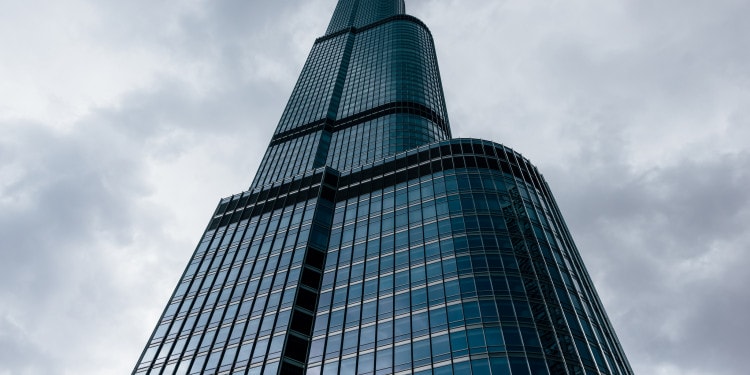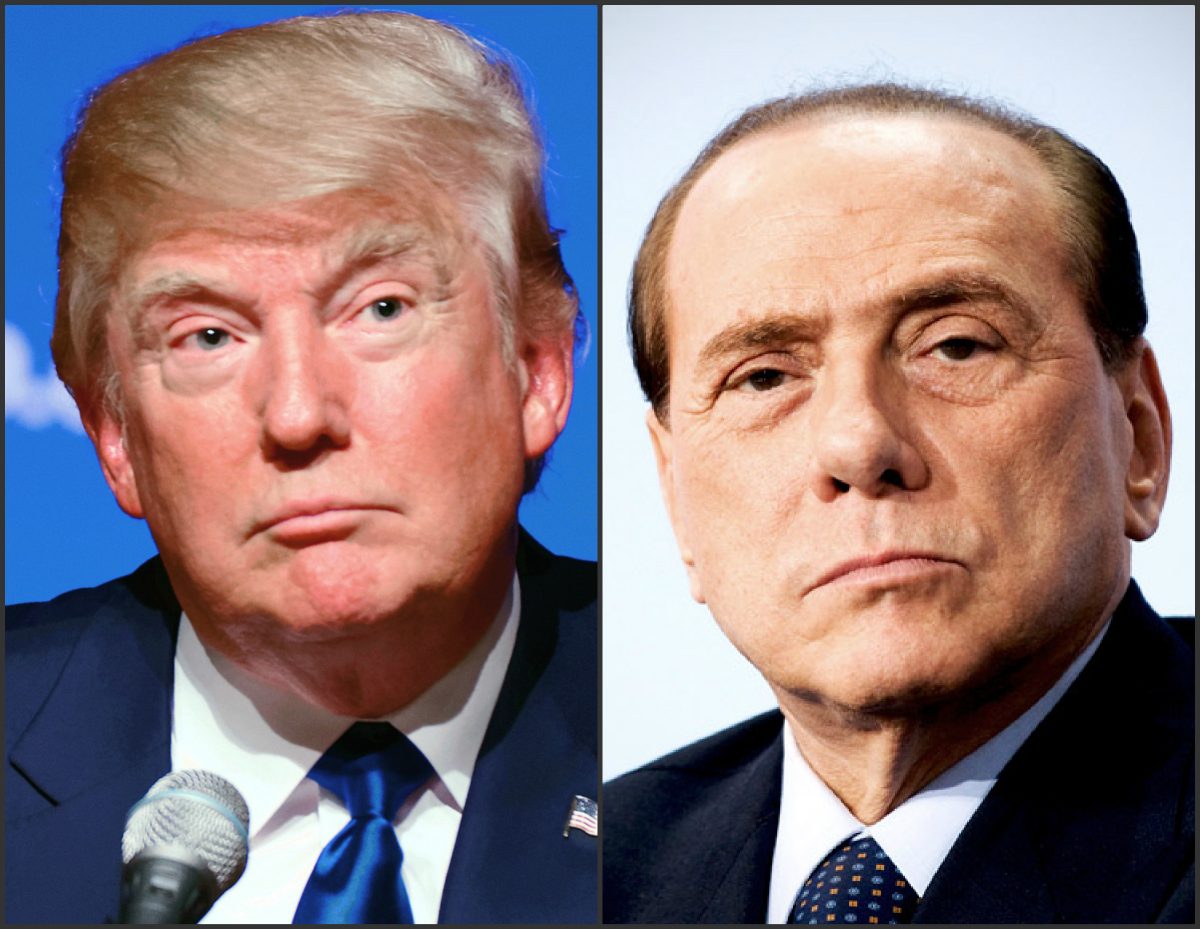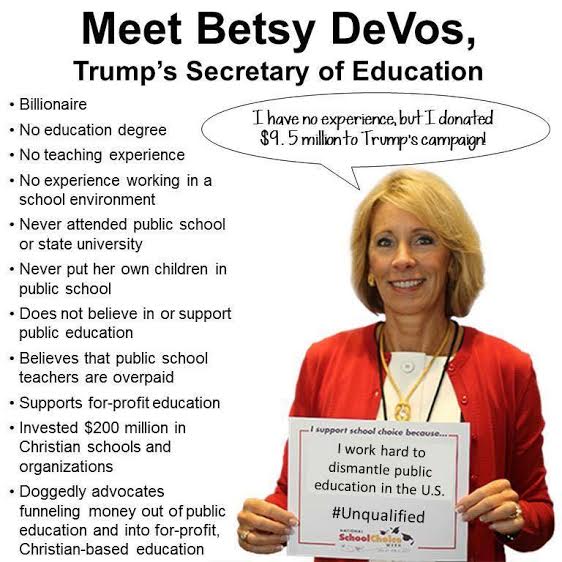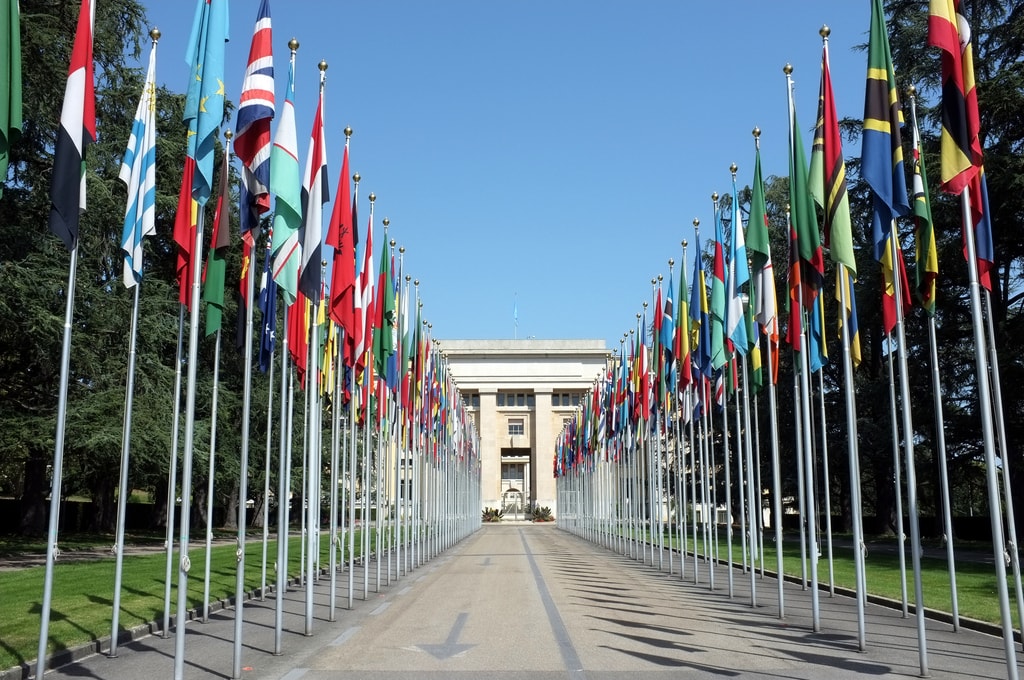WHAT TRUMP’S BUSINESS MODEL SAYS ABOUT THE NEXT ADMINISTRATION
Most people who voted Trump did so because they saw him as a successful businessman. They believed he had a business model, that he would be strong enough to clean up the “dirty game” in Washington and kick Congress into shape, “draining the swamp.” It was clearly an anti-governing-elite vote. We ended up with the unlikely scenario of a real estate billionaire, a symbol of the uber wealthy: a One Percenter as the hero and defender of the 99 Percent, a.k.a. “middle America.”
Will Trump really act as the paladin of middle America?
I believe we can get a good idea of what kind of administration is shaping up by looking at how the Trump Organization is run and what it says about Trump as a manager.
What Trump’s Non-traditional Business Model
Contrary to what most of his voters thought, he is not a businessman in the traditional sense. He didn’t make his millions by launching a manufacturing or high technology business that produces “things people need to buy,” as Steve Jobs did with Apple computers or “things people must use,” as Bill Gates did with Microsoft.
 In the Photo: The Trump International Hotel and Tower under construction in Chicago, Illinois, on 12 March 2006. Foreground, Star of Chicago, sightseeing boat. Photo Credit: JeremyA © Jeremy Atherton, 2006
In the Photo: The Trump International Hotel and Tower under construction in Chicago, Illinois, on 12 March 2006. Foreground, Star of Chicago, sightseeing boat. Photo Credit: JeremyA © Jeremy Atherton, 2006
He started off forty years ago in the wake of his father, a real estate mogul in his own right, building a few skyscrapers himself but he soon stopped – instead, he went into something very different: Selling his name, T-R-U-M-P, 5 letters that sound like a drum beat that he turned into his own, inimitable “brand.”
A brilliant idea and it worked wonders because he made sure to accompany the name with magnificent pump and glitter, the likes of which had last been seen in the French Sun King, Louis XIV’s Versailles. Yet Trump is not returning to a long-forgotten past, this is America, this is the future with soaring and gleaming skyscrapers, with a dazzling billionaire lifestyle, from golf courses to spas and beautiful bejeweled women, the kind every poor man dreams of.
Everything Trump has done, he’s done it to support his brand: self-promoting videos and books such the aptly-named “Art of the Deal”, his Reality TV show “The Apprentice”, crushing participants with his “business savvy.” He is above all a showman.
But that showmanship, however brilliant, was not enough (after all, there are many TV Reality stars in America). There had to be something else and there was. The Trump brand could not have succeeded without support from America itself, the kind of successful capitalism it projects around the world and that every businessman in every country wants to emulate.
As a result, the Trump Organization has grown into a very special kind of business, very 21st century. If it has “worked” so well for him since the 1990’s, through thick and thin, including several bankruptcies (for example, when his casino venture in Atlantic City collapsed), it’s because he is the quintessential American billionaire. He’s turned himself into a symbol of American business just as America was becoming the world mecca of Big Business.
Nobody expresses better than Trump the sense of power that accompanies corporate business splendor and excesses.
 Photo: Entrance to the Trump Taj Mahal in Atlantic City, NJ Photo Credit: Photo taken by Jrballe Jesper Rautell Balle on 31 December 2003, Creative Commons
Photo: Entrance to the Trump Taj Mahal in Atlantic City, NJ Photo Credit: Photo taken by Jrballe Jesper Rautell Balle on 31 December 2003, Creative Commons
But exactly what is Trump’s business model?
Not a Classic Franchise
We all know Trump is engaged in selling his brand – his “Trump towers,” hotels and other related ventures have come up in America and in 18 countries around the world, from Brazil to India, from Turkey to the Philippines. Yet what he does has nothing to do with the more common franchising model followed by Coca Cola or Benetton, other business behemoths that also sell their name and image. He does it his own way: He’s entirely and exclusively focused on selling the name and nothing else.
Take the example of Coca Cola. It doesn’t produce the bottled drinks that are sold around the world, but it does two very important things: one, it produces the concentrate – a secret formula – that goes into the drink; two, it provides full marketing support to its franchisees.
This means local bottlers take upon themselves the business risk, Coca Cola does not. Franchisees are the ones who invest in bottling plants, hire and fire people, and produce and sell the famous drink.
But Coca Cola does not leave them alone. It helps them along, fielding teams of marketers who “guide” them, suggesting but more likely imposing marketing campaigns on them, complete with slogans, videos etcetera. But they do more. Coca Cola marketing personnel, and not the local franchisees, oversee the Coca Cola trucks that carry the product across the country and monitor the Coca Cola distributors to ensure the “Coca Cola look” is always maintained: Selling points must be spiky clean, display cheery, fresh colors and always be stocked with quality products. In short, the job of Coca Cola is to monitor and defend around the world the “Coca Cola look.”
 Photo: A rare sight- a dirty, graffiti-laden Coca Cola truck in Bogotà, Colombia, that would probably have problems passing a “looks” test with a Coca Cola marketing team Photo Credit: Wikipedia User:Pedro Felipe/fotos24
Photo: A rare sight- a dirty, graffiti-laden Coca Cola truck in Bogotà, Colombia, that would probably have problems passing a “looks” test with a Coca Cola marketing team Photo Credit: Wikipedia User:Pedro Felipe/fotos24
The point of the franchise model is this: products are produced to strict specifications, they must meet set standards or the franchise contract is rescinded.
Is the Trump Organization engaged in similar activities? No. There is no monitoring, no quality control. Once the brand is sold, Trump’s involvement essentially stops (apart from some marketing events and videos to help launch the product). Suppose you are a real estate builder, you just pay for the right to use the Trump name on your building and that’s it.
Unlike Coca Cola that is concerned with its reputation, Trump is not. He simply walks away from the business. The Trump Organization does not provide any follow-up technical support. It does not expect franchisees to follow construction standards, or for that matter, to follow any rules, as was amply demonstrated with the Trump University venture. All Trump did in that case was produce a few marketing videos featuring him giving pep talks that, as acknowledged by everyone involved, helped hugely in launching the university. But he didn’t oversee or run Trump University, he left that job to others – with the disastrous results we have seen when Trump University students were scammed, paying for an education they never got. Predictably it led to class action and a law suit. That ugly business is now settled – Trump paid $25 million without batting an eyelash, after all, it’s all tax deductible.
It bears repeating: Once Trump has sold his name, he does not follow through with technical support to ensure quality control. He may condescend to participate in launching events, speak at conferences and even make marketing videos, but he does none of the actual business management.
In short, he does no monitoring at all of what is offered under his name. You’d think he would mind or worry but he does not. And there’s a good reason why he does not. He’s discovered that in America’s heavily legalized business environment, it pays to sell your name and run, leaving your teams of lawyers to extricate you out of lawsuits. It’s less demanding and less costly than actually run a business and it pays handsomely, all the more so that expenses are tax-deductible (after all, according to Forbes, he’s worth some $3 billion). He’s been involved in an extraordinary number of lawsuits, reportedly 3500 lawsuits in the past 30 years and he is now facing another slew of suits coming up, some 75 next year.
That propensity to litigate is something of a record, even more remarkable than Berlusconi’s, another business tycoon that ran a country for nearly 20 years – Italy. And, coincidentally, it should be recalled that Berlusconi, with his fixation on defending himself and his numerous businesses, ran Italy to the ground: every Italian I meet sighs that “two decades” have been lost, and it is certainly true that Italy has been mired in stagnation since Berlusconi came on the scene in the 1990s.
INTHE PHOTO:Donald Trump and Silvio Berlusconi: the close-up reveals the same smile, the same stare. PHOTO CREDIT: CF
However, drawing parallels between Trump and Berlusconi might be misleading – it’s still early days and one cannot conclude that the similarities are so strong that they will both end the same way (i.e. with a stagnant economy), even if it is likely. There are many economic factors to take into account: for example, an economy such as the U.S. could only go into “turbo-growth” mode if additional manpower were allowed to flow in, which means opening the gates to immigrants, something Trump never said he would do.
What is more interesting is to see is how Trump’s Business Model can predict how he will run the presidency: Not like a manager, but like a showman.
The Apprentice President
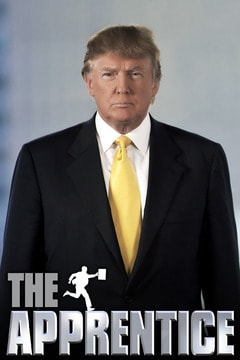
The transition period before a President-Elect takes over from the sitting President is usually a rather quiet, staid, even boring period, with a lot happening behind closed doors. Not so with Trump. We’ve been treated to something of a Reality TV show and the world is waiting “with bated breath and whisp’ring humbleness” for Trump’s next outrageous phone call to a foreign head of state (like Taiwan’s to the dismay of China); his next shocking government appointment (usually a billionaire pal or a general); his next hilarious 3 a.m. tweet (going against American constitutional law in cases of flag-burning or claiming that votes are rigged when a vote recount is demanded).
One may be forgiven to wonder whether he knows anything about American History or world politics, but his fans don’t mind, it’s a good show. He knows this and that’s why he now goes on a victory lap across the country, something no President-Elect has ever done. And the victory lap had to include a stopover at the Carrier plant where he “saved” one thousand jobs from “going to Mexico” by giving a $7 million incentive to the technology giant (who was quick to pocket it).
All this glosses over the annoying fact that one thousand jobs is a mere drop in the bucket. Moreover, it’s only half of the jobs that were threatened at Carrier: It is expected that another thousand jobs (and probably more) will soon disappear as the technology giant continues with plans to operate in Mexico and other low-cost areas. Is Carrier a bad guy? No, it has no choice, it has to defend its bottom line. Slapping on a tax at the Mexican border as Trump has suggested will not solve the problem: it will merely make all products more expensive for the average American consumer.
But these are boring economic arguments that Trump backers won’t listen to. What they like is the show and that’s what Trump has given them throughout his campaign and will continue to do. Show is in his nature. Expect him to do this throughout his presidency. This is what the “Aprentice-President” will look like.
The Next Administration: What is in Store for America
Since Trump-the-showman is in the habit of walking away from day-to-day administration, it is obvious that the people he has appointed will shape the kind of government America is headed for – probably more so than any other President before him.
The appointments he’s made so far clearly suggest that the next administration will be pro-Wall Street and pro-deregulation. With his billionaire pals taking control of Treasury (awarded to ex-Goldman Sachs golden boy Steven Mnuchin) and Commerce (Wilbur Ross, a corporate raider), expect major changes in legislation (favorable to banks) and major changes in the tax system (favorable to the ultrarich). Even staid European hedge funds (most recently a major Finnish one) are getting excited about the prospect of explosive “turbo-growth” in the U.S. and moving assets to America.
Expect classic conservative Republican principles of “small” government to come to the fore: for example, Trump picked billionaire DeVos as Education Secretary, a woman committed to privatizing public education through vouchers.
INTHE PHOTO: A strident anti-Trump poster which states true facts about Ms DeVos PHOTO CREDIT:
Expect also white nationalist extremism to rise, with Stephen ‘turn on the hate’ Bannon as “Chief White House Strategist”, a broadly defined job that implies he will have a say in about anything that comes up. No doubt there will be an “alt-right” outburst directed at what Trump likes to call “the crooked media” (the Washington Post, the Wall Street Journal, the New York Times).
Expect a reversal on the fight against climate change with the appointment of a confirmed climate denier to head the Environment Protection Agency – and this happens to jibe nicely with Trump’s billionaire supporters who own o il fields (the Koch brothers and their friends, using”dark money” as New Yorker writer Jane Meyer has called it in her bestseller, to sustain the rise of the radical right since the 1980s, reportedly with $889 million in the Trump campaign alone).
il fields (the Koch brothers and their friends, using”dark money” as New Yorker writer Jane Meyer has called it in her bestseller, to sustain the rise of the radical right since the 1980s, reportedly with $889 million in the Trump campaign alone).
Will that extend to a withdrawal from the Paris Climate Agreement (COP 21) reached a year ago?
Related article: “CAN DONALD TRUMP REALLY AFFORD TO IGNORE CLIMATE CHANGE?”
Can he afford to ignore climate change? Maybe or maybe not. Trump is likely to view the United Nations as a non-entity and so does Steve Bannon. Much will depend on who Trump picks as his Foreign Secretary. But even if he picks an internationalist, he is quite capable of undermining his own man’s diplomatic work, with 3 a.m. tweets and unannounced phone calls to “fellow presidents”.
Let’s not forget that he thinks very highly of those with dictatorial tendencies like Putin and Erdogan. And he’s already chosen the US Ambassador to the UN (a Republican politician, daughter of successfully integrated Indian immigrants) even before appointing his Foreign Secretary, which suggests that he plans to keep foreign affairs firmly in his own hands. He has also just appointed Lt. Gen. Michael T. Flynn as his national security adviser, who is famous for spreading fake news on Twitter (better known as “Flynn facts”). How such an extraordinary choice will square with any serious person willing to become the next Secretary of State is hard to fathom. We will have to see…
Turning to the central point of his campaign: Is he really going to try and reverse the effects of globalization to “bring back jobs and make America great again”? Not likely. After, all he has business interests around the world himself, so how real could his commitment be?
Moreover, globalization is driven by forces far greater than any POTUS, whether Trump or someone else. Globalization is driven by technological change that relentlessly kills jobs and by Wall Street that demands that Big Business focuses on its bottom line, containing costs to the maximum extent possible. Lowering production costs is so important that it is in fact a matter of survival for businesses in the capitalistic model embraced by America (and the Republicans). There are no alternatives to continuing outsourcing of jobs – hence, Trump is very unlikely to succeed in reversing globalization even if he wanted to.
In short, this new administration does not bode well for the working classes who voted for Trump. And it does not bode well for the fight against climate change. We could lose the next four years and we can only hope that America will make up for the time lost in a Post-Trump presidency.
Recommended reading: “GETTING TRUMP-ED BY ISLAMOPHOBIA”


